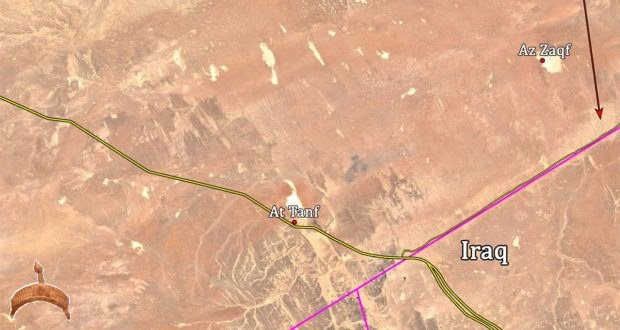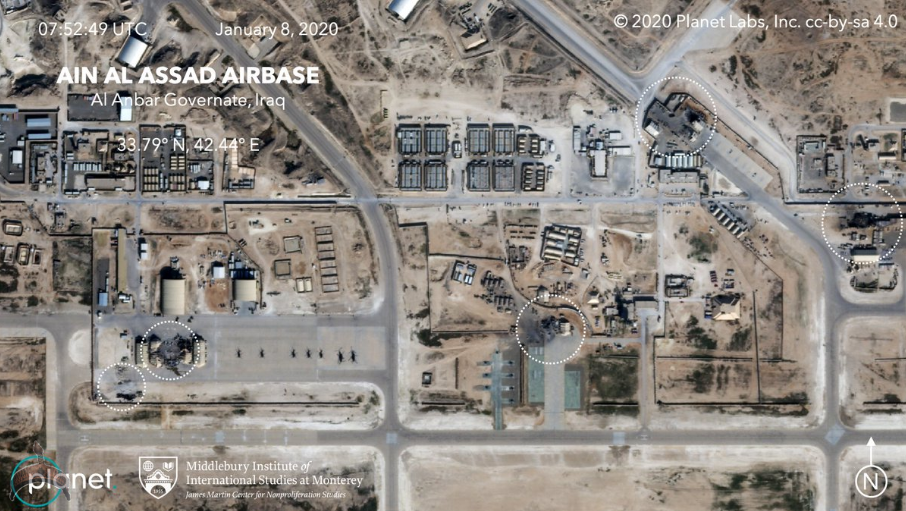by Ghassan and Intibah Kadi for Ooduarere
The recent developments following the 12th of May 2018 elections in Iraq put the country on a potential new course. What nature and direction of this course is the big question.
The now 44 years old, Muqtada Al-Sadr was only 25 years old when his father Ayatollah Mohammad Mohammad Sadeq Al-Sadr was ambushed and killed together with two of his sons, Muqtada’s brothers, and the legacy that young Muqtada inherited was huge for a young man of his age. https://en.wikipedia.org/wiki/Mohammad_Mohammad_Sadeq_al-Sadr , but nearly two decades on, seems to be learning how to fill his father’s shoes; and his current status requires of him more.
Al-Sadr’s party ‘Sairoon’ (which literally means “we are walking”; ie moving forward) has won a big stake in the Iraqi Parliament May 2018 elections, enough to give Al-Sadr the title of “King Maker” as some analysts did. https://www.rt.com/news/427266-iraq-elections-sadr-kingmaker-us-iran/
That win certainly did not give him the power to form a majority government in his own right, but his recently announced alliance with Al-Abadi’s Party on the 22nd of June, some forty days after the elections, sees an alliance now poised to form Iraq’s new government, and to put it mildly, this is likely to result in a revision of Iraqi-American relationships.
The formation of the alliance was inevitable, but it seems that both Abadi and Muqtada had to first give each other some reality checks.
Not much transpired from the negotiations between the two leaders leading up to the announcement of the formation of the alliance, but the more seasoned diplomat Abadi must have had a thing or two to say to his new partner about the role of Russia and the untouchable position of President Assad. Reciprocally, the leader and founder of Al-Mehdi Army, ie Muqtada, would have also said a thing or two about what position should the new Iraqi government-to-be take vis-à-vis the American presence in Iraq.
The most likely congruencies that both men would have agreed to are a tougher stand on the part of Abadi towards America, and a softer stand on the part of Muqtada towards Russia and President Assad. In reality, any other arrangement will not get much support base from the public and is doomed to fail.
In saying the above, and for fairness to Abadi, as Prime Minister “Take I”, he has clearly revealed his mild anti-American stance on a number of occasions, and this is not the time and place to discuss them. The new Al-Sadr-Al-Abadi alliance is likely to return the latter as a Prime Minister, but Al-Abadi Prime Minister “Take II” will have a larger political support base and a stronger mandate to act tough and resolutely with America.
The least that this new government-to-be will do is to formally request an American withdrawal from Iraq. This request will require a formal American response, and the question is what will happen if this withdrawal is not accepted peacefully by American consent?
With this said, one cannot separate American military presence in Iraq from its military presence in Syria. After all, there are no barriers at the borders between the two neighbouring states, and secondly and most importantly, America is using Iraq as a gate to enter Syria illegally. This is needless to say that should America respond positively to the highly likely request of the new Iraqi government to leave Iraq, it will need to reconsider its presence in Syria; at least logistically.
If America leaves the entire region completely, it will spare a lot of bloodshed on many sides; including its own. However, should America refuse an Iraqi request to leave Iraq, or should it leave Iraq and stay in Syria alone, American forces may find themselves wedged in between many adversaries, two of which are the governments of Syria and Iraq and potentially their respective armies, as well as other volunteers who will undoubtedly be coordinating efforts.
On the other hand, for as long as there is no real and present threat to create an independent Kurdish state, Turkey will be inclined to sit back and watch without escalating its current interventions and incursions; at least until further notice. However, should America respond positively to an Iraqi request and leave Iraqi soil, and as it loses the Iraqi gate into Syria, Trump may play the Kurdish trump card and lure Erdogan to allow America to use Turkey as new gate; under the pretense of trying to foil the creation of a Kurdish state, and which will be in total contradiction with America’s initial objective of wanting to create one. How will Erdogan perceive such a potential trick, if it eventuates, remains to be seen.
But with this above speculative scenario, we are jumping ahead a bit. The first political battle lines will not likely involve Turkey. They will be drawn between the USA on one hand, and Iraq and Syria and their supporters combined on the other hand.
The previous political hostilities between the Syrian and Iraqi Baath party factions are no more. After all, there is no such thing left as a functioning and legal Baath party in Iraq. Syria and Iraq are now joined at the hips in their struggle against ISIS and such, and the desire to make America leave.
If the US does not leave both Iraq and Syria either by its own volition or as a result of a formal Iraqi government request, it will probably ultimately face a new armed resistance and guerilla warfare. This has the potential of another military quagmire, akin to Vietnam’s; as an Iranian official has recently announced.
https://www.timesofisrael.com/top-iranian-official-syria-will-be-americas-second-vietnam/
How does Iran fit into this picture?
Muqtada Al-Sadr is “technically” a Shiite cleric, but he is fiercely independently Iraqi in his outlook. A nationalist? Perhaps not, but definitely a patriot. His party is therefore independent from Iran; even though the hierarchy of the Shiite Twelver faith, to which he belongs, is represented and headed by Iran’s Supreme Leader Khomenei. This doesn’t make Muqtada anti-Iranian either, and undoubtedly, if he finds himself having to choose between an alliance with either America or Iran, one would assume that he would choose the latter, but he is not an “Iranian puppet” as other Shiite leaders are purported to be by their political and religious adversaries.
As a matter of fact, Muqtada Al-Sadr worries Iran for a number of reasons, least of which is the fact that he recently made a visit to Saudi Arabia to meet with Crown Prince Muhamed Bin Salman. http://www.mei.edu/content/article/io/influential-iraqi-cleric-sadr-s-saudi-visit-triggers-worries-tehran
Back to troops on the ground.
Unlike American presence in Syria, Iranian presence, at whatever capacity, is upon the demand of the Syrian Government; ie legal. The more America asks for an Iranian withdrawal from Syria, the more it inadvertently puts pressure on its own presence and turns the Iranian presence into a bargaining chip for the Syrian, Russian, Iranian and potentially Iraqi side, thus bringing to the negotiating table a possible agreement based on a concurrent withdrawal of both Iran and America.
There has been pressure put on Syria throughout the war to relinquish its ties with Iran as a condition for the cessation of Saudi-led hostilities, and President Assad has spoken about this in a recent interview. https://www.youtube.com/watch?v=OghUmbc_i3I . However, a trade-off that sees Iran withdrawing its presence in Syria in exchange of American withdrawal is not something that has been discussed, not yet and at least not overtly.
The American presence on Iraqi and Syrian soils creates a very complicated dilemma even for America itself, not only because America does not know what to do next, but also because it does not know how to score a resounding victory, not even a humble one, let alone with whom to negotiate any face-saving and inexpensive exit.
The prospects of the War on Syria entering a whole new phase are becoming more dangerous, and as Hezbollah Chief Nasrallah put it recently, instead of the enemies of Syria depending on proxies to fight on their behalf, an option they tried and failed, they are now poised to use their own troops.
A pessimistic, but realistic outlook is for a war spiraling out of control and drawing in more parties and having them getting bogged down. This scenario can only begin with American obstinacy and refusal to leave Iraq and Syria. Once again, this scenario opens a big window for guerilla attacks on American troops, and there are unconfirmed reports that allege that such attacks have already begun. This time, such attacks will target American bases in both Iraq and Syria and the parties involved will not be restricted to what was formerly referred to as the mainly Sunni “insurgents” that followed the 2003 invasion of Iraq. As history reveals, once such attacks begin, they only tend to escalate and as they escalate, they will have the potential to involve more parties, and as greater Iranian involvement is likely to ensue, we can only expect more direct Israeli involvement.
This does not mean that Israel will not become the first party to escalate. Israel’s military history has been by-and-large based on taking military initiatives. This is what military powers with the upper hand have historically done over the centuries. But even though Israel’s military does not have the needed upper hand any longer, its policy makers seem to continue to live in the fantasy of the post Six-Day War euphoria. And even though most of the military gambles they have taken since have failed, the lesson has not been strong enough to teach them that times have changed.
Either way, any crescendo-like scenario can potentially lead to an upscale in direct Iranian involvement to assist war-ravaged Yemen and a direct confrontation between Iran and Saudi Arabia, Iran and Israel, not to forget Hezbollah, with enormous consequences for all parties involved, even if any end up victorious.
And when it comes to America’s involvement, a pertinent question to ask here is whether or not America can actually financially afford a new big war. And if it does start a small fire that grows and soars out of control, intentionally or otherwise, will such a big and expensive war hasten its economic demise?
The bottom line here is that unless all parties decide to go into a war of mutual self-destruction and annihilation, they will need a mediator, and Russia is the only entity that is on “talking terms” with all stakeholders; Iraq, Syria, Iran, Turkey, Saudi Arabia, Israel and the United States.
Back to Muqtada Al-Sadr; his stance as a “fundamentalist” Shiite leader who is not aligned with Iran on one hand, and has some ties with Saudi Arabia on the other hand, among other things, puts him in a very unique and peculiar demographic position. He is perhaps to Iraq what Russia is to the regional and international powers involved in the Middle East deadlock. Just like Russia is on talking terms with all parties involved, Muqtada is on reasonable talking terms with all different parties in Iraq; except the separatist Kurds of course.
It ought to be remembered that it is not just Shiite Iraqis who want the immediate and unconditional withdrawal of America from their country. All Iraqis, with the exception of some Kurdish collaborators, want America out, but they have not yet found an Iraqi banner to unite them.
Muqtada is definitely no saint, and the fact that he started his “career” based on a Hamlet-like quest to avenge his father’s death is quite ominous. This is not to mention the stigma of his photos that portray him as an angry man with a frowning face, and they are quite easy to Google. But the man, who is still young at 44 years of age, is not a demon either. He had many challenges very early in his adult life. He was catapulted into his father’s leadership role in his mid-twenties, had to find a way to deal with the 2003 American invasion of Iraq without turning himself into an American target as Saddam had become, and last but not least, be able to survive and flourish in the aftermath of it all.
Perhaps Muqtada Al-Sadr will be the leader to carry that banner that will unite Iraqis, and even though he is a cleric, realistically he is possibly the closest thing one can hope for today in the quest to find an Iraqi secular leader who has any clout and potential. Note the irony.
Muqtada seems to have what it takes to inspire recruits to join troops for battle. But he managed to portray himself as the defender of the poor and the man to embark on reform https://www.aljazeera.com/indepth/features/muqtada-al-sadr-iraq-militia-leader-turned-champion-poor-180517053738881.html . With an agenda of this nature and caliber, if he plays his cards properly, and if he manages to prove to the diverse Iraqi masses that he is genuine and sincere, he has a fairly good opportunity to surmount the stigma of the robes he wears, the sect they identify him with, and be able to rally up a broadly-based support from Iraqis of different religions, sects, and ethnicities.
Whether or not he can achieve this remains to be seen.
The literal meaning of his party’s name “Sairoon” is perhaps to be perceived auspiciously as Iraq stands at a historic fulcrum toiling with the dilemma of how to move forward, and where to.
What is equally interesting is that now, that he is Iraq’s elected “King Maker”, he has earned his side a formal position on the negotiating table with America. This undoubtedly will be giving him a negotiation position with an olive branch in one hand and a rifle in the other; as Yasser Arafat described his stance when he addressed the UNGA back in 1974.
Once again, the key to peace or more war in the region is in the hands of America. Will America heed the warning signs and save itself and the Middle East another needless disaster?
 Ọmọ Oòduà Naija Gist | News From Nigeria | Entertainment gist Nigeria|Networking|News.. Visit for Nigeria breaking news , Nigerian Movies , Naija music , Jobs In Nigeria , Naija News , Nollywood, Gist and more
Ọmọ Oòduà Naija Gist | News From Nigeria | Entertainment gist Nigeria|Networking|News.. Visit for Nigeria breaking news , Nigerian Movies , Naija music , Jobs In Nigeria , Naija News , Nollywood, Gist and more









